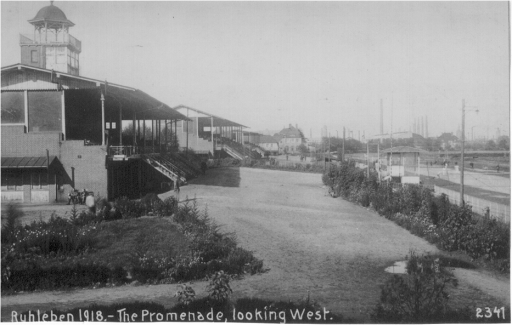The remarkable story of how more than 5,000 mainly British men spent the entire four years of the First World War held captive in the heart of Germany can be revealed by Centenary News.
Fresh insight into how the men survived in the little-known Ruhleben prison camp, near Spandau, Berlin, has been unearthed by Elgin Strub-Ronayne.
 Elgin Strub-Ronayne
Elgin Strub-Ronayne
Elgin always knew her stepfather Wyatt Rawson, a young Cambridge student, had been imprisoned at Ruhleben, built on a former racecourse.
He never talked about his experiences there, but confided to her, close to his death in his 80’s, that he still had nightmares about the place.
It was in autumn 1914 that the Germans began rounding up Britons who had been stranded by the war. The racecourse was chosen as a makeshift internment camp for them but with little provision for their needs.
The captives were largely forgotten and found conditions were basic. They had to sleep crammed into rat-infested stables with no heating or lighting and horse dung on the floor.
But over the years of imprisonment they banded together to improve their lot forming music, drama and debating societies, naming paths after London streets and turning the camp into a mini British colony in the middle of Germany.
They even produced their own magazine. When Elgin chanced on six editions of the Ruhleben Camp Magazine in a second-hand bookshop in Brighton she became interested in exploring more, only to find little was known about the camp.
The Ruhleben Camp Magazine was written in a light-hearted vein but gives a real insight into the courage and resourcefulness of the internees throughout their long incarceration.
Elgin also delved into the archives of the Imperial War Museum and began reading everything she could about Ruhleben to shed light on her stepfather’s secret story.
More insights about the camp have been uncovered recently by the Royal Horticultural Society Lindley library in London which has found pictures of the camp’s thriving gardening society and is eager for more information.
Elgin has written a fascinating account of life inside the camp, in our features section here, based on her research, which reveals the extraordinary resilience and spirit of the men in the face of hardship and daily tedium and their reunions for many years after the war ended.
Posted by: Mike Swain, Centenary News
